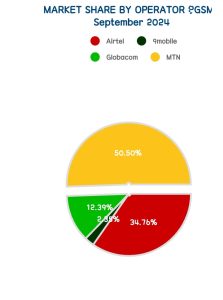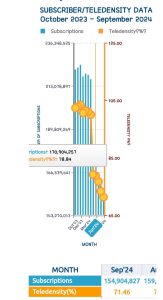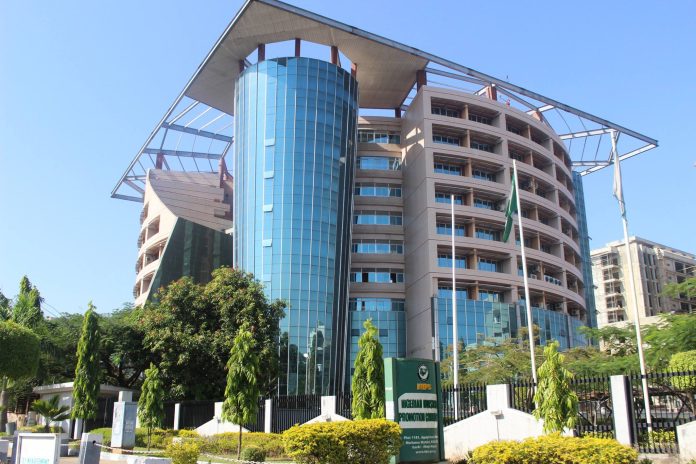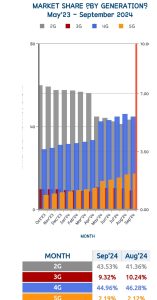The Nigerian Communications Commission (NCC) has released its latest report, showcasing the growth and transformation within Nigeria’s telecommunications industry as of September 2024. This data, compiled in line with the provisions of the Nigerian Communications Act 2003, offers a detailed look at subscriber growth, internet adoption, and evolving technologies in the sector.
The NCC’s analysis reflects not just numbers but the stories of millions of Nigerians whose daily lives, businesses, and connections depend on the backbone of the telecom industry. From students in remote areas accessing online education to businesses leveraging faster internet for global reach, the impact of these trends resonates deeply.
A Nation Connected: Subscriber Growth and Teledensity
With 132.9 million active subscribers recorded in September 2024—an increase from 131.4 million in August—Nigeria continues its upward trajectory in telecom adoption. This growth reflects the nation’s increasing reliance on mobile and digital connectivity as essential tools for communication and economic development.
Teledensity, a measure of the number of active lines per 100 inhabitants, remains strong. The statistics highlight significant strides in bridging communication gaps in urban and rural areas.
A Shift Towards the Future: Technology Adoption Trends
The NCC report provides a fascinating glimpse into how Nigerians are embracing new technology:
2G networks, once the backbone of mobile telephony, now account for 43.53%, marking a gradual decline as users migrate to faster networks.
3G technology holds 9.32%, also waning as newer generations take center stage.
4G networks, offering high-speed internet services, dominate with 44.96% of the market share, emphasizing their vital role in modern communication.
5G adoption, though still emerging, has grown to 2.19%, reflecting its potential to revolutionize industries like healthcare, education, and e-commerce.
This migration to advanced technologies signals a collective move towards a more connected, data-driven society.
Internet Access: The New Lifeline
The surge in internet subscribers is another highlight of the report. Over 132.4 million Nigerians now rely on GSM networks for internet connectivity, with 205,634 users adopting Voice over Internet Protocol (VoIP) services for cheaper and clearer communication.
Fixed-wired subscriptions, while relatively small at 9,453, indicate the ongoing relevance of dedicated lines for specific business and enterprise needs.
Behind the Numbers: Stories of Change
Beyond the statistics lies the story of a country undergoing digital transformation. From a small-scale entrepreneur using 4G to reach customers on social media to a student in a rural community attending online classes via 5G hotspots, the numbers represent real-life progress.
Even the challenges, such as areas still dependent on 2G networks, highlight the ongoing work required to ensure every Nigerian has access to reliable and fast connectivity.
NCC’s Role: Guardians of the Telecom Ecosystem
As the regulator, the NCC’s responsibility goes beyond monitoring. Its role in shaping policies, fostering competition, and ensuring consumer satisfaction is pivotal. Regular analyses and surveys like this help identify gaps, influence policy decisions, and drive innovation.
With its finger on the pulse of the industry, the NCC is not just a regulator but a catalyst for growth, ensuring that Nigeria’s telecom sector remains vibrant and globally competitive.
Looking Ahead
The shift towards faster and more reliable networks like 4G and 5G reflects not just technological progress but the aspirations of a nation hungry for growth. With initiatives to expand internet access, reduce costs, and improve service quality, the future of Nigeria’s telecommunications landscape is undoubtedly bright.
Beyond the statistics lies the story of a country undergoing digital transformation. From a small-scale entrepreneur using 4G to reach customers on social media to a student in a rural community attending online classes via 5G hotspots, the numbers represent real-life progress.





